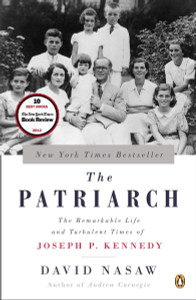An unusual route into the thicket of JFK conspiracy literature. Kirkus Reviews
Focusing for the first time on why attorney general Robert F. Kennedy wasnt killed in 1963 instead of on why President John F. Kennedy was, Mark Shaw offers a stunning and provocative assassination theory that leads directly to the family patriarch, Joseph P. Kennedy. Mining fresh information and more than forty new interviews, Shaw weaves a spellbinding narrative involving Mafia don Carlos Marcello; Jack Ruby (Lee Harvey Oswalds killer); Rubys attorney, Melvin Belli; and, ultimately, the Kennedy brothers and their father.
Shaw addresses these tantalizing questions: Why, shortly after his brothers death, did a grief-stricken RFK tell a colleague, I thought they would get one of us . . . I thought it would be me? Why was Belli, an attorney with almost no defense experience (but proven ties to the Mafia), chosen as Jack Rubys attorney? How does Bellis Mafia connection call into question his legal strategy, which ultimately led to the Rubys first-degree murder conviction and death sentence? What was Joseph Kennedys relationship to organized crime? And how was his insistence that JFK appoint RFK as attorney general tantamount to signing the presidents death warrant?
For fifty years, Shaw maintains, researchers investigating the presidents murder in Dallas have been looking at the wrong motives and actors. The Poison Patriarch offers a shocking reassessmentone that is sure to alter the course of future assassination debates.
Skyhorse Publishing, as well as our Arcade imprint, are proud to publish a broad range of books for readers interested in history--books about World War II, the Third Reich, Hitler and his henchmen, the JFK assassination, conspiracies, the American Civil War, the American Revolution, gladiators, Vikings, ancient Rome, medieval times, the old West, and much more. While not every title we publish becomes a New York Times bestseller or a national bestseller, we are committed to books on subjects that are sometimes overlooked and to authors whose work might not otherwise find a home.



